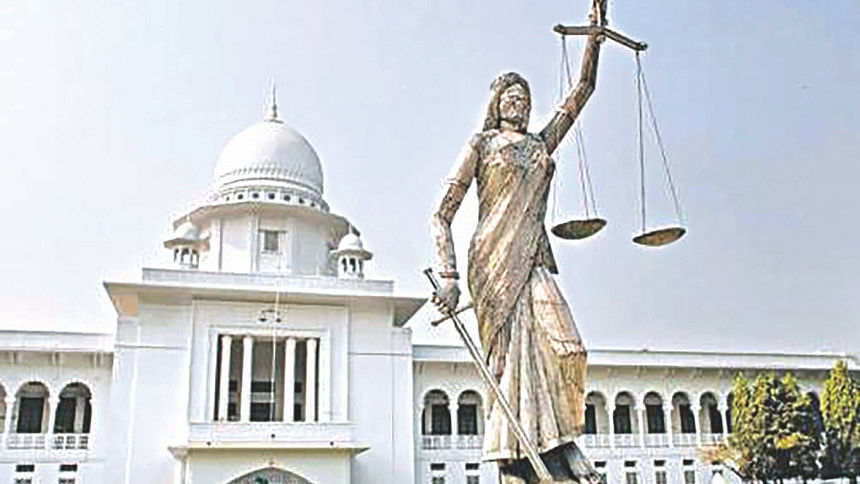Social and cultural barriers in accessing civil justice system

Goal 16 of the SDGs pledges ‘ensuring access to justice for all’ irrespective of their race, sex, colour, language, religion, wealth, etc. In Bangladesh, the poverty ridden people, women and vulnerable people are not getting easy access to civil justice system because of some social and cultural barriers. In a UN report on extreme poverty and human rights, some social and cultural barriers were summarised. Persons living in poverty often decide against bringing a case to court because of those barriers, thereby precluding them from accessing to justice system. In this write-up, hence, I tend to explain some of those barriers synthesising with my professional experiences.
The first obstacle is the fear of reprisal from more powerful actors of their community. An imbalanced position of the poor people in comparison with the muscle man of the society makes the former reluctant to approach any justice system. This one is a long traditional and also social obstacle in this country. Perhaps this was the cause for what the character Upen waived his right to appeal against the decree obtained by the landlord on the basis of false loan-defaulting case in ‘dui bigha jomi’ of Rabindranath Tagore.
The second one is mistrust of the justice system which is also related with the first one. People of the society acquire this mistrust observing for long-time the outcomes of justice institutions. If the outcomes contradict with their perceptions of justice, they lost the trust upon the court. Although it is difficult to define which outcomes of judicial decision would be considered just outcomes, from the viewpoint of cultural belief it can be termed just one if it conforms with the maxim ‘justice should not only be done, but should manifestly and undoubtedly be seen to done’. In other word, the people of the society and the individual litigant would realise that justice has been done. Such realisation denotes the people’s prediction of judicial outcome which is popularly known as predictability of court’s decision. It means the possibility to predict ex ante how the law will be applied by the court ex post.
The third obstacle is for women irrespective of their economic solvency. In Bangladesh, there are strong social and cultural norms that women should not claim their proprietary rights before the court and even at the time of family settlement. In our society, there is a concept of ‘good sister’ and ‘bad sister’. The sister who leaves her inheritable proprietary right to brother is applauded as good one. Last week, while I was presiding over the court, a brother-plaintiff was deposing that he is the only successor of his parents. I scrutinised the documents and discovered that he has three sisters. When I asked him, ‘why did not you implead your sisters as plaintiffs of this suit?’ The lawyer replied that the sisters are so good and affectionate to their brother that they waived their rights in this particular property. Although goal 5 of the SDGs and inheritance law ensures women’s right to economic resources, ownership and control over land and other forms of property, etc., women’s cultural perception of losing the label of ‘good sister’ or ‘good woman’ refrain them from seeking their lawful rights before any court.
The fourth one is the socio-economic subordination. For example, in some societies, poor women may be unable to approach justice system without the assistance of a male relative, while in very hierarchical societies those who are economically dependent on other groups are unlikely to pursue justice claims against them. Once one man told me, he used to reside with his elder brother’s family after the death of their parents. He now resides separate, but yet he could not ask his elder to have their ancestral property partitioned. He even cannot pursue a lawsuit for partition because all the related documents of their property are under the custody of his elder brother and he does not have sufficient means to collect copies of those documents from different government offices.
The fifth one is lack of awareness and access to information. Persons living in poverty are often deprived from the opportunity to acquire the tools, social capital and basic legal knowledge necessary to engage with the justice system. They are unaware of the existence and contents of their legal rights and entitlements, of the State’s obligations and duties towards them, and of how to secure the assistance they need. To conclude, all these social and cultural barriers make the poor, women and vulnerable people incapable for accessing the justice system.
THE WRITER IS JOINT DISTRICT JUDGE AND VOLUNTEER OF SDG LAB.

 For all latest news, follow The Daily Star's Google News channel.
For all latest news, follow The Daily Star's Google News channel. 



Comments